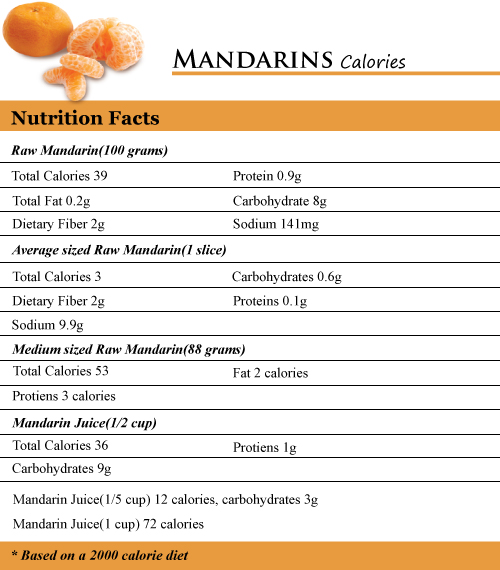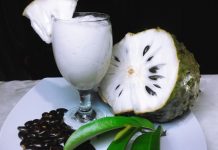Mandarin is a popular low calorie fruit rich in Vitamin C. Besides being low in calories it offers a number of other health benefits. You may consume mandarin in its raw form which is the most popular way of consuming it. You may also have mandarin juice. The calorie content in each of these forms is different. Mandarin is also added to custards, puddings and cakes to enhance their taste. You may also consume mandarin flavoured ice creams and jelly.
100 grams of raw mandarin contains 39 calories. The total fat content in an equal quantity of raw mandarin is 0.2 grams, protein content is 0.9 grams, total carbohydrate content is 8 grams, dietary fiber is 2 grams and sodium content is 141 mg. One slice of an average sized raw mandarin contains 3 calories. Total carbohydrates content is 0.6 grams, 2 grams of dietary fiber, 0.1 grams of proteins and 9.9 mg of sodium.
A medium sized raw Mandarin which weighs around 88 grams has 53 calories out of which around 48 calories come from carbohydrates, 3 of these come from proteins and 2 from fat. It also contains various essential Vitamins such as Vitamin A, thiamin, niacin, folate, riboflavin, pantothenic acid, B-6. It is a rich source of Vitamin C; a medium sized raw mandarin fulfils around 85% of the suggested daily intake of this Vitamin. Mandarin also contains different dietary minerals including potassium, magnesium, copper, calcium, manganese and phosphorus.
Mandarin may also be consumed in juiced form. Mandarin juice is also considered quite nutritious. Half a cup of Mandarin juice contains 36 calories. It contains 9 grams of carbohydrates and 1 gram of protein. One fifth cup of Mandarin juice contains 12 calories and 3 grams of carbohydrates, one forth cup of Mandarin juice contains 18 calories and 1 cup of Mandarin juice contains 72 calories.










